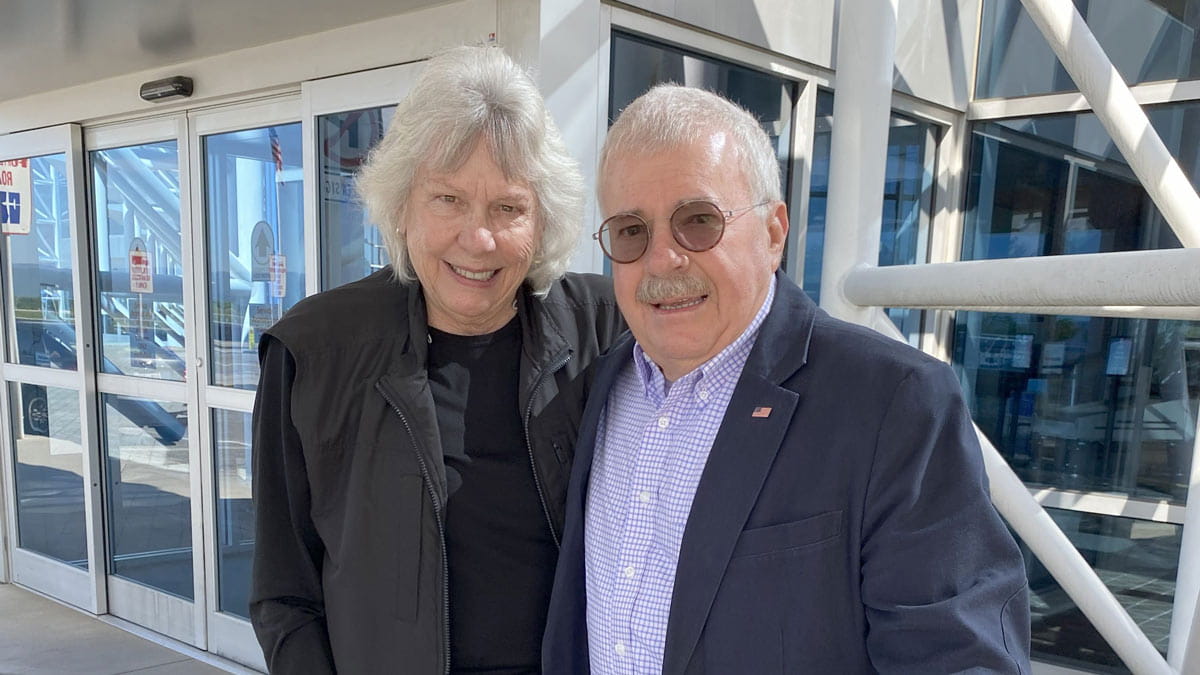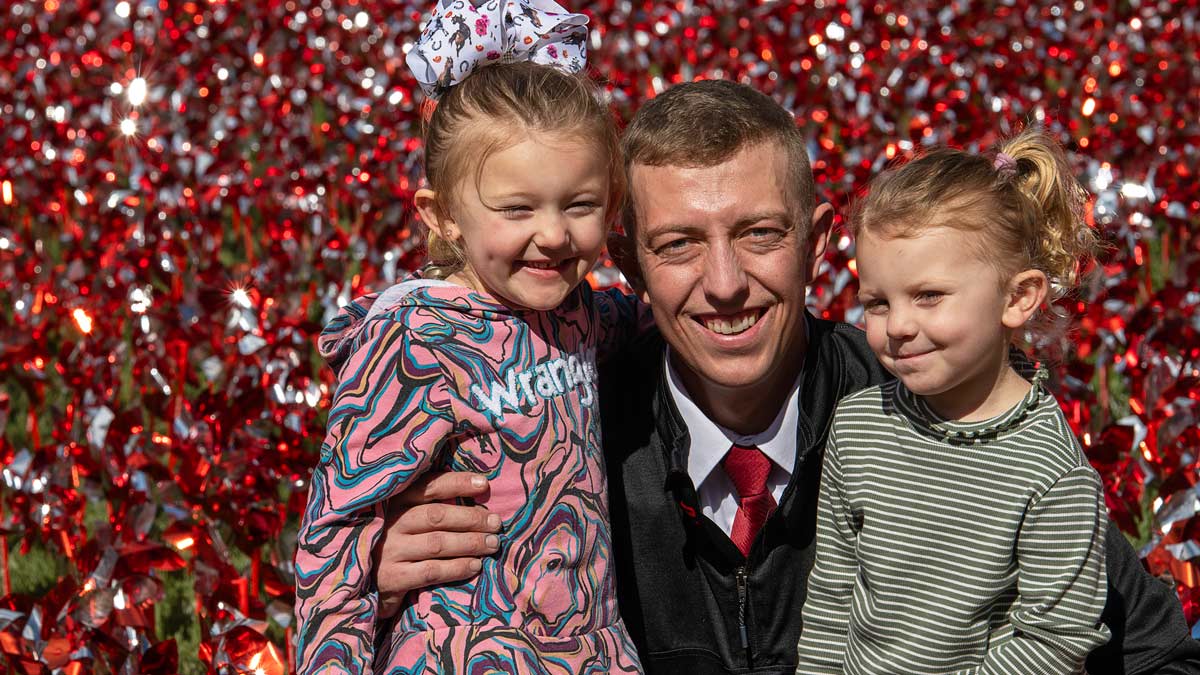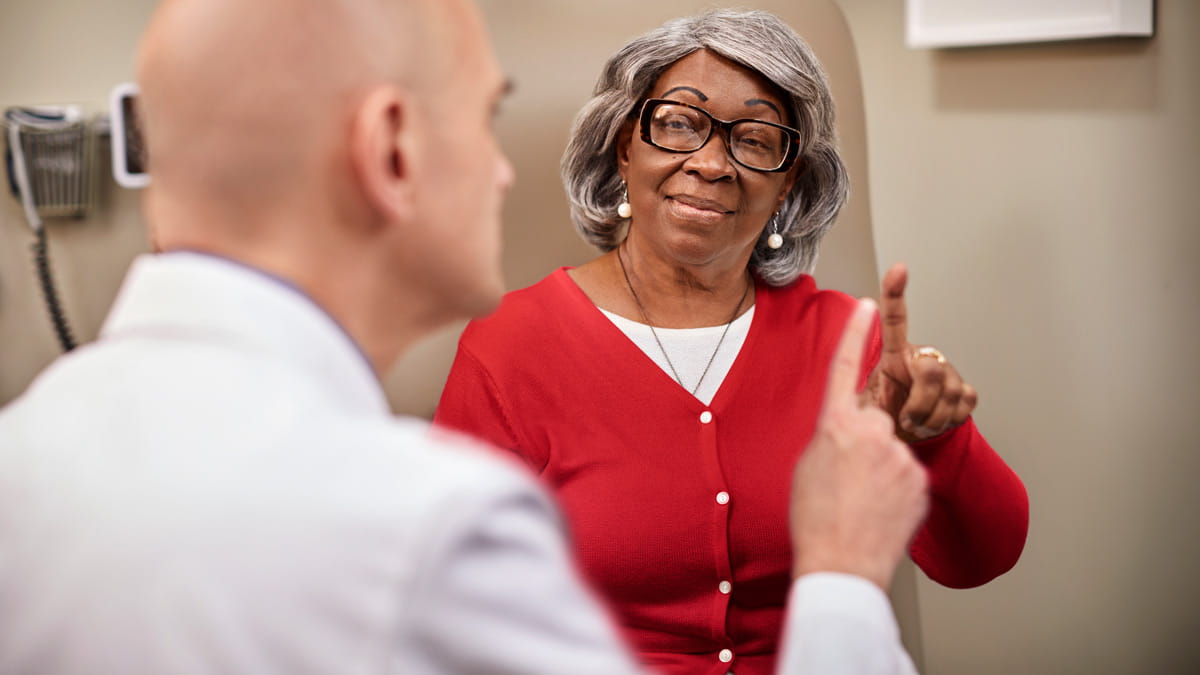Veteran doctors share how their service affects your care

When a medical degree is combined with military service, a special care philosophy develops.
The Ohio State University Wexner Medical Center has hundreds of staff members who are veterans.
We asked some of our physicians to write about how their experiences in the military have shaped the way they care for their patients.
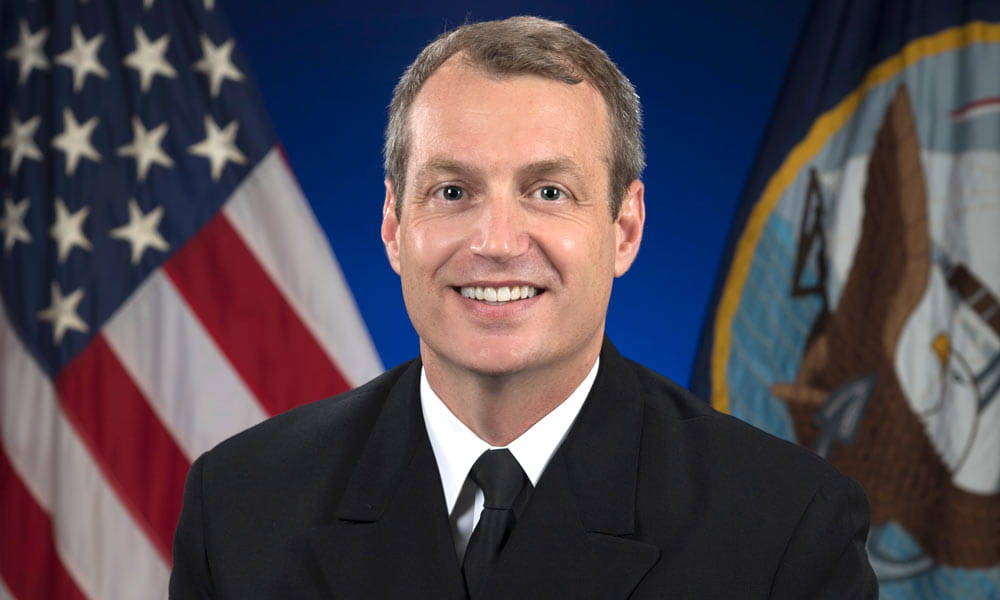 Jason Souza, MD
Jason Souza, MD
Specializes in Plastic Surgery
Director of the Orthoplastic Reconstruction Program
Dr. Souza served in the U.S. Navy as a commander for six years and worked at Walter Reed National Military Medical Center in Bethesda, MD. He was part of Operations: MEDRETE Panama 2017, Pacific Partnership 2017 and Continuing Promise 2018.
My military experience has left me with a lasting commitment to do everything in my power to ensure that our wounded warriors get the quality care that they deserve. We all owe a tremendous debt of gratitude to those who choose to serve our country and sustained combat or training injuries, not only for their service and sacrifice, but for the attitude and approach that they have taken towards their recovery. Their patience, perseverance, courage and determination to push the boundaries of what can be achieved through reconstructive surgery has reshaped the conversation for all patients presented with a devastating injury or illness. Technology and techniques that were born out of the last two decades of military conflict have been widely applied to cancer and civilian trauma care. The Ohio State Wexner Medical Center is well positioned to return the favor, by offering these veterans state-of-the-art care.
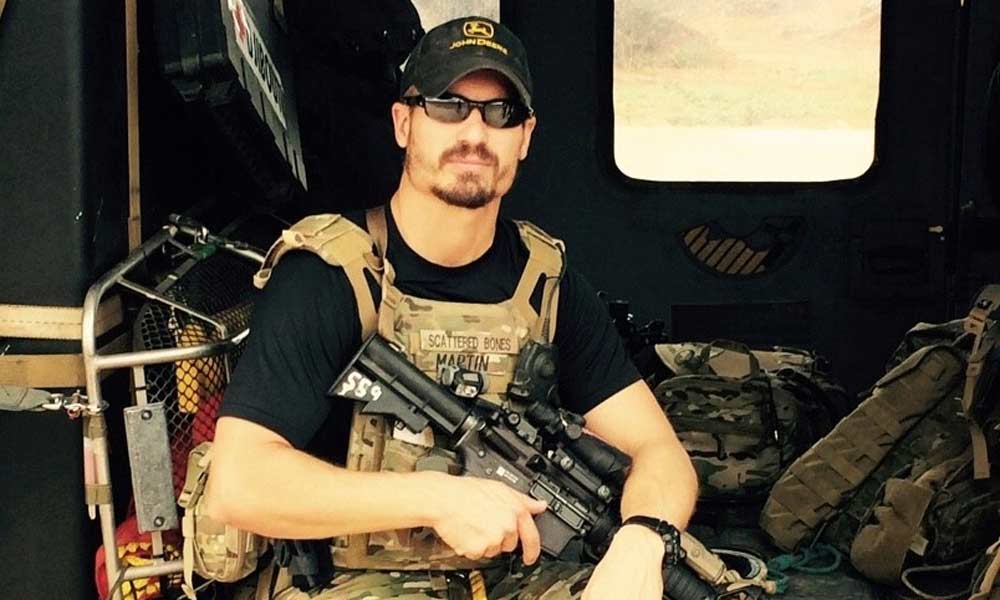 Kevin Martin, DO
Kevin Martin, DO
Specializes in Orthopedic Surgery – Foot and Ankle
Dr. Martin joined the Army straight out of high school as a combat medic. He became a practical nurse as part of a combat support hospital. He earned a medical school scholarship provided by the Army and completed an orthopedic residency at William Beaumont Army Medical Center in Fort Bliss, Texas. He was assigned to Joint Special Operations Command medical support unit and deployed multiple times to Iraq, Syria, Afghanistan and Africa and was involved in direct combat actions. For his service in Afghanistan, he was awarded the Bronze Star. Over the past year, he has joined The Ohio State University Wexner Medical Center and continues to serve in the Army Reserve.
My experience in the military has allowed me the opportunity to deal with severe trauma and limb salvage situations. This experience has helped me manage complex trauma patients at the Ohio State Wexner Medical Center, providing experience and compassion to all our patients.
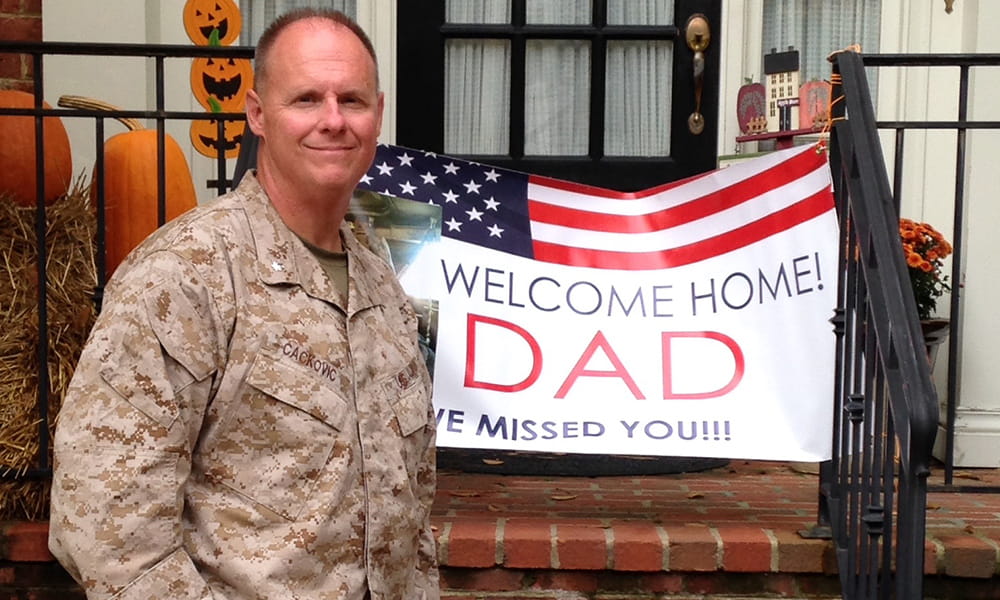 Michael Cackovic, MD
Michael Cackovic, MD
Specializes in Maternal Fetal Medicine
Assistant Professor of Obstetrics and Gynecology
A Navy physician, Dr. Cackovic was deployed in Haiti, Afghanistan and Central America.
I think the biggest thing that my military background has given me is a sense of empathy. Taking care of Marines and sailors and deploying with them has allowed me to see what my patients are going through, what they are feeling, how it is to be where they are coming from and to feel their challenges. I still utilize this when taking care of my patients today and in making decisions that will affect their lives.
As a veteran of Operation Enduring Freedom in Afghanistan, I can truly understand the anxiety and concerns of those whose partners are deployed. It works both ways, as it helps me understand what my family was going through.
If patients find out about my service, they will thank me. I think this makes them feel proud. This strengthens our doctor-patient relationship. Surgically, I believe it gives them a sense of comfort to know that I have operated in a wide variety of areas.
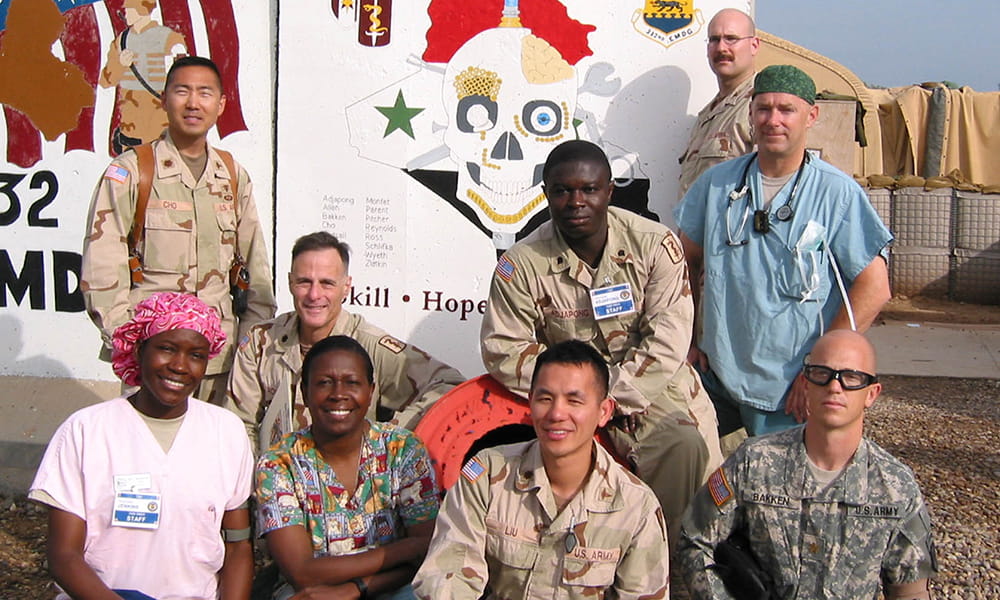 Raymond Cho, MD
Raymond Cho, MD
Director, Ophthalmic Plastic and Reconstructive Surgery
Department of Ophthalmology and Visual Science, Oculoplastics Division
Dr. Cho, top left, retired at the rank of colonel after 21 years as an active duty Army physician at medical facilities and bases throughout the United States and in Iraq.
My military background enables me to relate better to the patients whom I treat at the Chalmers Wiley VA Hospital and the Dayton VA Medical Center through a partnership with Ohio State. I know the challenges that veterans face, and they understand the breadth and depth of training and experience that I accumulated over my career as a military physician. Many of the cases I encountered, such as complex trauma patients that I treated in Iraq, or highly specialized referrals at Walter Reed (Army Medical Center in Washington, D.C.) and at the San Antonio Military Medical Center, helped shape the way I care for patients today.
Our veterans are highly committed to their country, their families and their ideals. They have a great sense of duty, respect and responsibility, and I can't think of a better population of patients to work with.
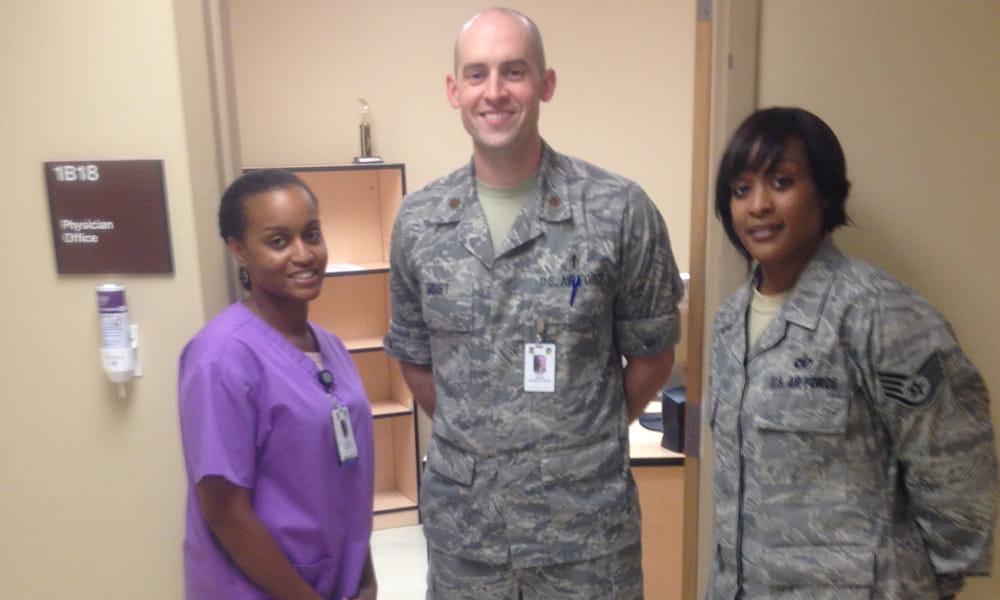 Kevin Goist, MD
Kevin Goist, MD
Co-Medical Director, University Hospital Medical/Surgical Nursing Units
Lead Physician, General Internal Medicine Inpatient Services
Assistant Professor of Clinical Medicine and a primary care doctor
Dr. Goist was an active duty Air Force internal medicine physician from 2007-2013 at Wright-Patterson Air Force Base in Dayton before joining Ohio State.
The United States Air Force has three core values: integrity first, service before self and excellence in all we do. I like to think that I still live these core values in my life and as an Ohio State University physician and that they guide me in my profession. I strive to be a person of integrity and a physician who is honest, trustworthy and reliable to my patients and to my colleagues. I want to provide outstanding medical care and be part of a larger mission to help heal others and comfort them in a period of illness, which may be the most difficult time of their lives.
I have quite a few patients currently who are veterans and some who are active in the Reserves/National Guard, so that is almost always an instant connection that helps build rapport and foster trust. Recently I had a young patient in the National Guard who was making some poor life decisions that were potentially damaging his military career, which he greatly valued. His mother stated that others could not help him realize the consequences of his actions. I, however, had my prior service to fall back on, and we were able to connect on a different level. Recently, I saw him in follow-up, and he is thriving and expressed his gratitude for our discussion.
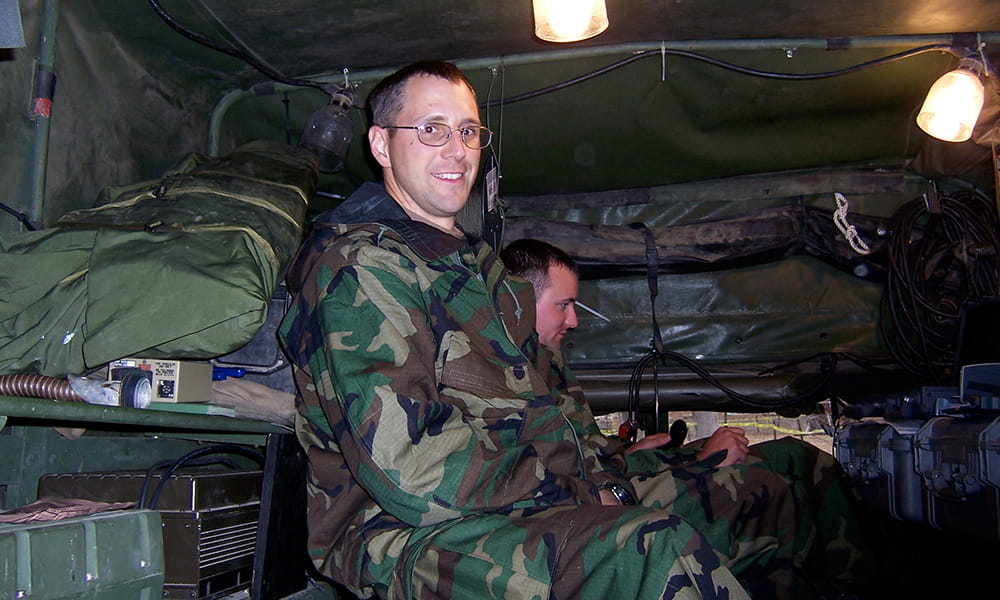 Daniel Bachmann, MD
Daniel Bachmann, MD
Director of the Hyperbaric Medicine Program
Director of Emergency Preparedness
Assistant Professor, Emergency Medicine
Dr. Bachmann was an undersea and diving medical officer in the United States Navy, stationed at bases in Virginia and California.
When I know that one of my patients in the Emergency Department is a veteran (or even still active duty), I always make the effort to thank the person for service to our country. Occasionally this leads to more in-depth conversations about the details of their military time, but oftentimes it just allows them to feel more whole in a situation where they are undoubtedly in the ED due to being broken down in some manner.

